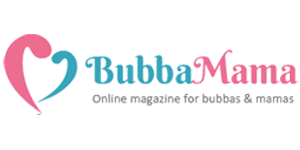Dear busy moms, it takes more than just a healthy lifestyle to prevent breast cancer.
You are a regular gym-goer. A vegetarian by choice every other day, you religiously down 8 glasses of water on a daily basis. Your favourite apps are Alo Moves and ClassPass. You adopt a routine of sleeping early, and you an avid iHerb shopper. You maintain a healthy BMI of 22. You think that these health-conscious decisions would build up your immunity to prevent all sorts of cancer – and you’re almost right about that.
But ask yourself when was the last time you went for a health checkup? Routine screenings are necessary especially with women of age. As the saying goes, prevention is better than cure, how many preventive measures can a regular-day busy mom practise?
We have Dr Ong Kong Wee, head of the Women’s Centre at Concord International Hospital, to address these commonly asked questions and walk us through several instructional to-dos that you will not go wrong with.
Q: What are the common myths and misconceptions about breast cancer?
A: Having breast cancer is equivalent to losing their lives. Women must know that breast cancer is very treatable in a vast majority of breast cancer patients with early detection and the availability of advanced screening and high level of quality medical care in Singapore.
Breast cancer is not life-threatening. In fact, 90 per cent of those diagnosed with breast cancer live beyond five years and 80 per cent are of them are diagnosed at an early stage. Going for regular health screenings is tantamount to detecting abnormalities and illnesses early.
Q: How often should women go for mammogram screenings?
A: With up to 40 per cent of women under the age of 50 in Singapore contracting breast cancer, it is advisable to start screening early, at the age of 40. Women between the ages of 40 and 49 are encouraged to go for annual mammogram screening and those between ages 50 to 59 for screening once every two years.
Q: How should women perform self-checks at home?
A: For women who have not reached menopause, self-checks are most accurate when done one week after her last menstruation when the breast is softest, making it easier for a lump to be detected.
Even though breasts of Asian women are denser, making it harder for lumps to be detected, it is important for them to make self-check a regular routine. They should check for obvious changes, such as lumps, distortion, skin dimpling and nipple discharge.
Besides health tips, Dr Ong suggested alternatives to determine your likelihood of developing breast cancer.
1. Choose breastfeeding to reduce the estrogen window.
While maintaining an overall healthy lifestyle, women should be aware of estrogen. Longer exposure to the hormone may increase the chances of breast cancer. Breastfeeding lowers the risks and prevents breast cancer.
2. Study your family line for traces of breast cancer risks
Women are at higher risks to develop breast cancer under these conditions:
- if they have a family member or personal history of breast cancer
- if they have prolonged hormonal exposure like In Vitro Fertilisation (IVF)
- if they regularly consume birth control pills
- if they have a history of hormone replacement therapy
The award-winning Dr Ong is a dedicated advocate in the area of breast cancer awareness and early detection – as well as the pioneer of the technique of intraoperative radiotherapy in the treatment of early breast cancer. The CIH Women’s Centre is run by an integrated team of specialists to provide women with a range of health services.




Comments 1